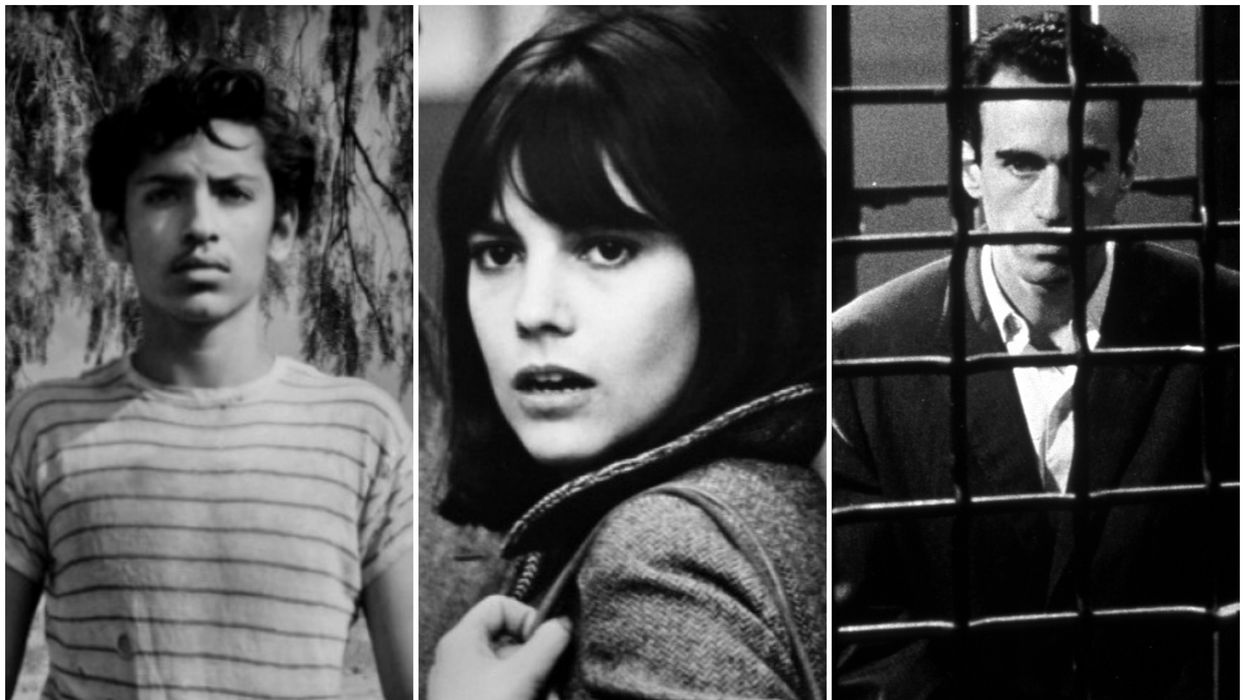6 Essential Films According to Richard Linklater
There are some films that are so important to cinema that all cinephiles and filmmakers should know about them.

To celebrate 30 years of the Austin Film Society, founder/Boyhood director/indie film icon Richard Linklater programmed 6 films for his "30 Years of AFS Programming" series which not only "exemplify AFS’s programming aesthetic and mission", but also fall into the "essential viewing" category. The great thing about this list is that although it highlights world-renowned directors like Jean-Luc Godard, Robert Bresson, and Martin Scorsese, it focuses on their more obscure work instead of their classic masterpieces. So no, you're not going to get Breathless, Un Chien Andalou, or Raging Bull, but you'll get some films that you may have never heard of or watched before -- which is always preferred, yeah?
Masculin Féminin
Pretty much all of Jean-Luc Godard's films are essential viewing, especially the work he did in the 60s. Masculin Féminin is one of those films that reminds you of your youth -- it meanders, it takes its time, it's rebellious, and a little angsty. It doesn't care if it captures your attention, because it's going to exist whether you like it or not. Linklater says this about the film:
Where's that radical Godard-esque about being a young person inundated with technology? He had these kind of witty protest films. This was when he was still a little light on his feet. There's a lot of humor amongst the angst and protest of Masculin-Feminine --
Los Olvidados
When you think of Luis Buñuel you typically think of Un Chien Andalou, the directors very famous avant-garde film with the very famous scene in which a woman's eye gets cut open. However, Los Olvidados, or The Forgotten Ones, was Buñuel's first international box-office success. Linklater says:
-- It's just one of the great teen movies, if you can call it that. It's a beautiful, sad story. Without that, there's no Pixote, there's no City of God, there's no Over the Edge. It's a great genre, the troubled teen. But this is a really beautiful, surreal film. It has that neorealistic vibe, and yet it's very surreal. All these beautiful slow motion dream sequences come out of nowhere. They're just stunning.
Pickpocket
The thing that always comes up when people talk about Pickpocket, one of Robert Bresson's most well-known films, is its choreography. Of course, a film about a thief who depends on the elegance of his hand movements to steal is going to zero in on hand gestures, but the way Bresson does this is without a doubt a masterclass in cinematography and editing.
There's nothing funny about it, but it's so swift — a perfect film. With every cut, there's no misplaced beat. The later films still had that same formal momentum, but Pickpocket — maybe because of the nature of it, the guy's on his feet — it really clips along. It's lean and mean Bresson. You never sit an extra second in the theater with a Bresson film. He's the most elliptical, beautiful, cleanest storyteller ever.
Ticket of No Return
To be honest, I've never even heard of this film, but Linklater's description of it makes me want to find a print and check it out -- as well as Ulrike Ottinger's other films :
Ulrik Ottinger was the most real and [experimental] of all the German New Wave directors. She was probably the most out-there, too. She's a fascinating artist in that world. It's more radical than Fassbinder, Herzog, all those guys. She's as cool as them, but this takes it to a whole new level. The subtitle is "Portrait of a Woman Drinker," and the movie is hard to describe. It doesn't have any dialogue. The woman gestures.
New York, New York
Scorsese's musical isn't without its flaws -- Linklater himself says it's "the one that people crap on." However, the beauty in it, according to Linklater is, yes, in its own complexity, but more in the timing of its release:
It felt completely out of time and place when it was released, which is kind of beautiful. You make a film from your heart. On the surface, it might look crazy: The guys who just did Taxi Driver going back to the big band era. Could you be less hip in 1977, the year that Star Wars opened?
The Ceremony
Here's another film I know nothing about, but I do remember my filmmaker friends in college, who were super into Japanese cinema, saying that Nagisa Oshima was the "Quentin Tarantino of Japanese film" -- and after a bit of research, I'm realizing they didn't know what the hell they were talking about. Sure, Oshima was a rebel, but his rebellion was inspired by political activism, not provocation for the sake of provocation.
I'm a huge Nagisa Oshima fan. He was one of the most radical Japanese directors to come up in the '60s -- He's such a master -- The Ceremony is intense — it's another multigenerational family drama about Japanese history. It's very ambitious on both the family and political level. I haven't seen it in a long time, but I remember thinking it was a masterpiece like so many of his films. He was just not afraid to go all the way with an idea -- Oshima was just a total hardcore badass. He was dodging censors unhappy with his political message about postwar Japan. But he kept going, making these films.
What do you think of Linklater's list? Which ones have you seen? Let us know in the comments below!
Source: Austin Film Society













